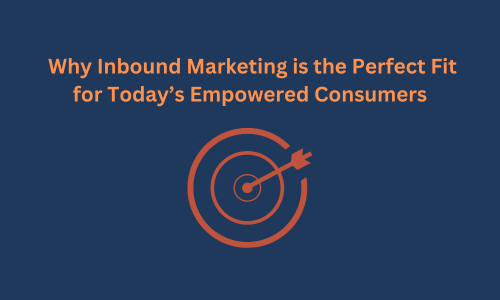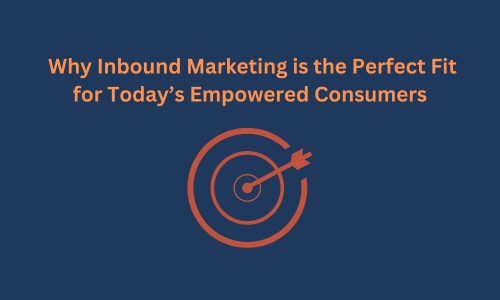


In a world where consumers have more control over their buying journeys than ever before, traditional marketing strategies are increasingly losing their impact. Gone are the days when consumers passively received information and accepted what brands told them. Today’s buyers are more informed, more sceptical, and more discerning. They seek value, authenticity, and personalized experiences—and they have the tools to find it. This shift in consumer behaviour has given rise to a marketing approach that aligns perfectly with these demands: inbound marketing.
To understand why inbound marketing is so effective, it's important to first recognize how consumer behaviour has evolved. The rise of the internet, social media, and mobile technology has transformed the way people make purchasing decisions. Here’s how:
Information at Their Fingertips: Modern consumers are no longer reliant on salespeople or advertisements to learn about products. They can easily access information online, comparing prices, reading reviews, and researching alternatives before making a purchase.
Self-Education: Empowered by access to information, today’s buyers prefer to educate themselves. They engage with content—articles, videos, webinars, and reviews—to gain insights and solutions to their problems.
Trust in Peers and Influencers: In the digital age, consumers trust recommendations from peers, influencers, and other users more than traditional advertising. Authentic reviews and social proof have become critical in influencing purchasing decisions.
Demand for Personalization: Today’s consumers expect brands to understand their individual needs and preferences. They value personalized experiences that make them feel understood and valued.
Inbound marketing, with its focus on attracting, engaging, and delighting customers through valuable content and experiences, is tailor-made for the modern consumer. Here’s how it aligns with today’s consumer behaviour:
Content as a Resource: Inbound marketing’s foundation lies in creating and sharing valuable content. Whether it's blog posts, e-books, or videos, this content serves as a resource that empowers consumers to make informed decisions. It aligns perfectly with the modern consumer’s preference for self-education.
Building Trust and Credibility: Inbound marketing builds trust by delivering authentic, valuable content rather than interruptive ads. By providing answers to questions, addressing pain points, and offering insights, brands can establish themselves as credible sources of information. This approach resonates with consumers who prioritize trust and authenticity.
Personalization and Targeting: Inbound marketing leverages data and analytics to deliver personalized experiences. By understanding consumer behaviour and preferences, brands can create targeted content and offers that resonate on an individual level. This level of personalization is exactly what modern consumers expect.
Engaging in Two-Way Communication: Unlike traditional marketing, which often relies on one-way communication, inbound marketing encourages interaction. Through social media, blogs, and email campaigns, brands can engage in meaningful conversations with consumers, fostering relationships and creating loyal communities.
Nurturing Long-Term Relationships: Inbound marketing is not just about making a sale; it’s about building long-term relationships. By continuously providing value through content and support, brands can keep customers engaged and loyal over time. This focus on relationship-building aligns with the modern consumer’s desire for ongoing value and support.
Many brands have successfully harnessed the power of inbound marketing to connect with modern consumers. Let’s look at a few examples:
HubSpot: As a pioneer of inbound marketing, HubSpot has built a massive following by offering free, valuable resources like blogs, templates, and tools. Their approach focuses on educating consumers, which not only attracts potential customers but also builds trust and authority in the marketing industry.
Airbnb: By creating content that highlights unique travel experiences and local culture, Airbnb has positioned itself as more than just a booking platform. Their content-driven approach appeals to modern travellers looking for authentic experiences, aligning perfectly with consumer desires for personalized, trustworthy recommendations.
Spotify: Through personalized playlists and recommendations, Spotify has leveraged inbound marketing to engage users. By analysing listening habits and preferences, Spotify delivers a highly personalized experience, keeping users engaged and loyal.
Markethive: Markethive is an inbound marketing and social networking platform designed specifically for entrepreneurs. It provides an ecosystem where members can access a suite of inbound marketing tools to promote their businesses, helping them build connections, grow their audience, and engage customers with valuable content.
While inbound marketing offers many advantages, it also comes with its challenges:
Adapting to Change: Consumer behaviour, technology, and algorithms are constantly evolving. Brands need to stay agile, continually refining their strategies to stay relevant.
Standing Out Amid Content Overload: With the explosion of content online, it’s more challenging than ever to capture attention. Brands need to focus on quality, consistency, and providing unique value to stand out.
Measuring Success: Unlike traditional marketing, where results are often immediate, inbound marketing requires a long-term view. Measuring the success of inbound strategies involves tracking metrics like lead generation, engagement, and conversion rates over time.
As consumers continue to evolve, so too must the strategies that businesses use to reach them. Inbound marketing, with its emphasis on value-driven content, personalization, and relationship-building, aligns perfectly with the needs of today’s empowered consumers. By adopting inbound marketing strategies, brands can not only attract and convert customers but also foster long-term loyalty and advocacy.
In a world where consumers have more choices than ever before, inbound marketing offers a way to stand out by meeting consumers where they are—empowered, informed, and in control. It’s not just a marketing strategy; it’s a way to build lasting connections in a consumer-centric world.
Disclaimer: This article is provided for informational purposes only. It is not offered or intended to be used as legal, tax, investment, financial, or other advice.
